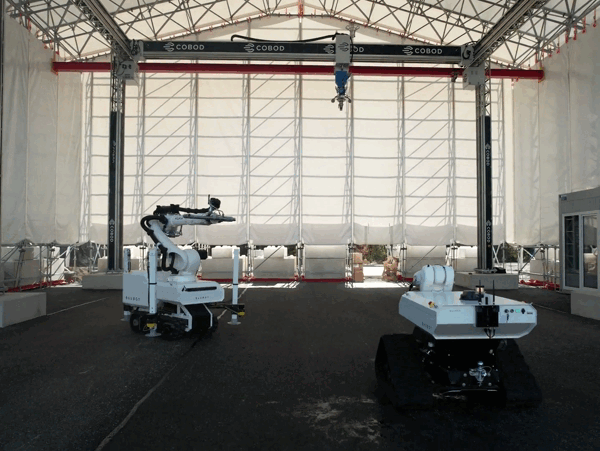
With the project ‘The Digital Construction Site – Construction Industry 4.0 as the Key to a Digital and Sustainable Construction Industry,’ the Technical University of Braunschweig aims to research digital manufacturing technologies. Their impact on planning and production processes will be surveillance under real construction site conditions to provide guidance for construction practice.
The Digital Construction Site is a joint project of institutes within the Faculty of Architecture, Civil Engineering and Environmental Sciences.
The increased demand for new buildings and infrastructure measures due to the growing world population will lead to a further increase in global construction activity. To stop global warming, the construction industry – with its enormous consumption of resources – must successfully transform itself into a climate-neutral economy in the near future. The central task of the construction industry is to meet the growing demand for construction with fewer resources and fewer emissions. This creates an enormous need for research.
The project ‘The Digital Construction Site – Construction Industry 4.0 as the Key to a Digital and Sustainable Construction Industry’ has established a unique, innovative digital large-scale equipment infrastructure. With the help of this infrastructure, digital technologies are to be researched under real construction site conditions and viewed as a networked system in the spirit of Industry 4.0. The digital construction site represents an application-oriented and versatile research infrastructure that offers excellent new research opportunities for investigating the opportunities of a digital and integrated planning and production process.
We're currently working on making our news articles available in more languages, but for now, they're only available in German.
Click here to view them.
The acronym ERDF stands for European Regional Development Fund ("Europäischer Fonds für regionale Entwicklung") and represents an investment and structural fund. The ERDF is the flagship of the EU Structural Funds. It stands for a modern, innovation-oriented EU structural policy that supports investment in future technologies, particularly in structurally weak regions, and also serves to achieve the EU's climate protection goals. The ERDF Regulation sets out the specific funding priorities and the focus of future ERDF programmes. The majority of funding goes towards measures to support innovative and smart economic change and a greener, lower-carbon Europe. Sustainable urban development is also an important area of the ERDF.
Additive manufacturing, and 3D concrete printing in particular, are key technologies for transforming the construction industry, as they combine economy and ecology. Through the DFG Collaborative Research Centre TRR 277 ‘Additive Manufacturing in Construction (AMC)’, the Technical University of Braunschweig, as the coordinating university, together with the Technical University of Munich, has already laid the foundations for a resource-efficient digital construction industry in the field of 3D concrete printing and other additive manufacturing technologies. A key objective now is to transfer basic research into application-oriented research and to test practical construction applications on a 1:1 building scale, with particular emphasis on sustainability criteria. The research is highly interdisciplinary and will lead not only to new technological process developments but also to new qualified specialist job profiles at a higher level. In addition, safety and quality on construction sites will increase and be the subject of research.
Vacancies of TU Braunschweig
Career Service' Job Exchange
Merchandising
Term Dates
Courses
Degree Programmes
Information for Freshman
TUCard
Technische Universität Braunschweig
Universitätsplatz 2
38106 Braunschweig
P. O. Box: 38092 Braunschweig
GERMANY
Phone: +49 (0) 531 391-0
